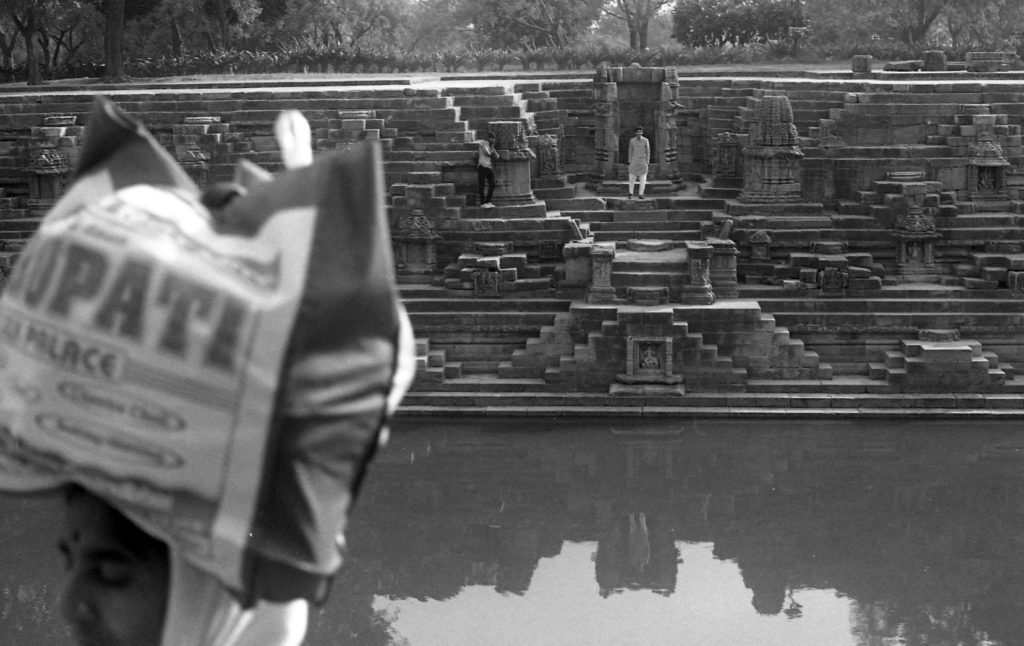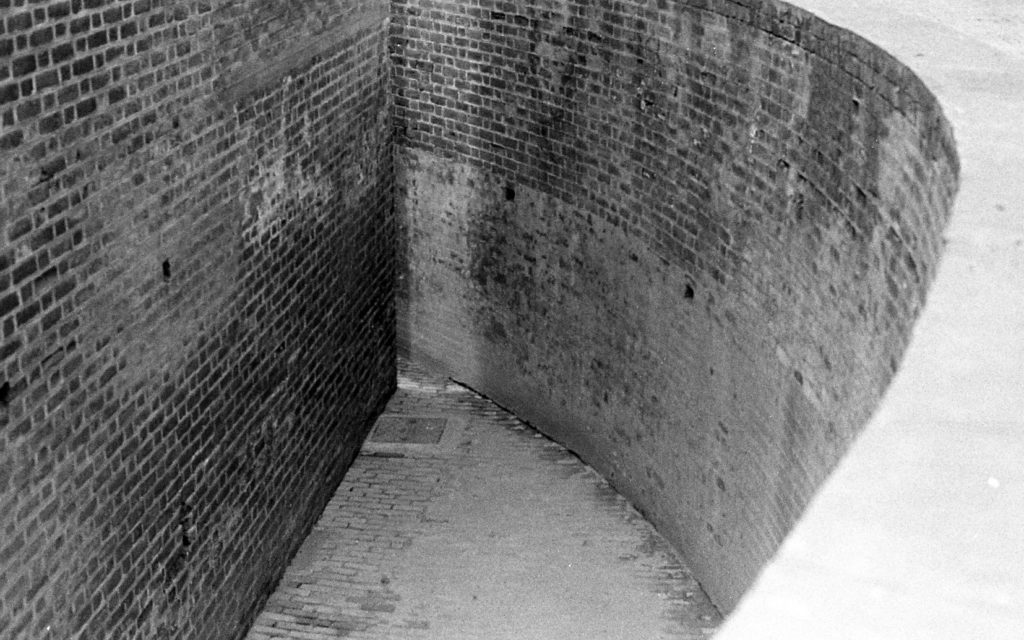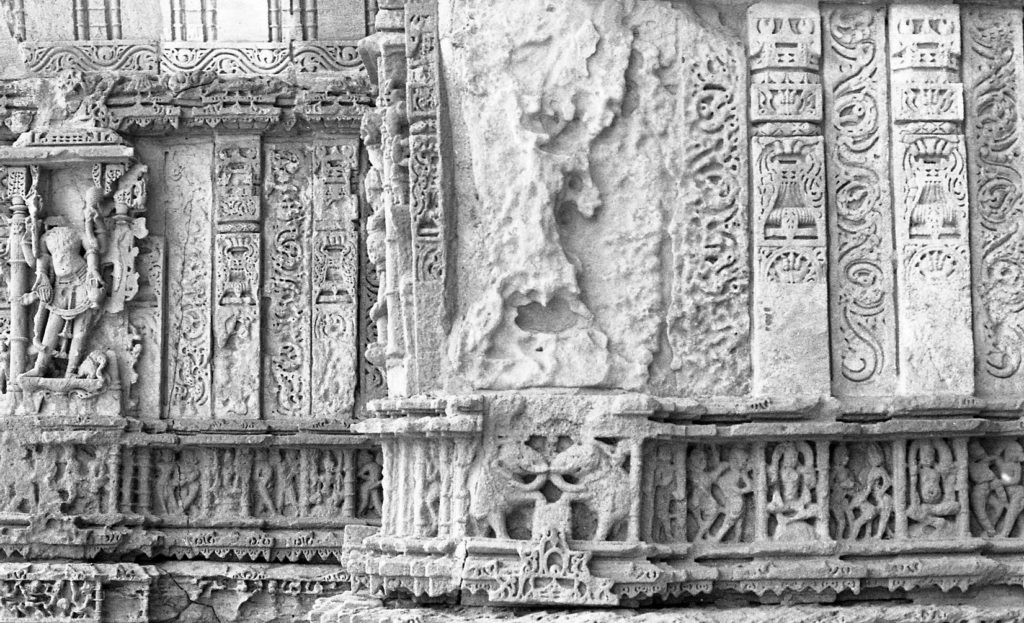The Indian Threat to England (On the Occasion of a Political Assassination by a Young Hindu) 1909
by Stefan Zweig
TRANSIT vol. 11, no. 2
translated by Ashwin J. Manthripragada
Translator’s Introduction
In the winter of 1908, the 27-year-old Stefan Zweig left Vienna for a five-month journey to India, Ceylon, and Burma. The affairs of the Subcontinent followed Zweig back to his European home when, on the first of July, 1909, in London, Madar Lal Dhingra, an Indian revolutionary, attempted to assassinate the Viceroy of India Sir William Curzon Wyllie. As one of few Austrian writers to have traveled so far eastward, Zweig could not let these affairs go unaddressed: He wrote this essay, published on July 13, 1909, for the Viennese newspaper, Neue Freie Presse. Indeed, as I ultimately argue in the article, “Stefan Zweig’s Fear of Postcolonialism” in TRANSIT 11.1, Zweig addressed these affairs to interrogate the British fear of an Indian uprising for the implicit purpose of better understanding his own fear of a postcolonial Austria-Hungary and a postcolonial world more generally. At times, Zweig’s Eurocentric, degrading view of the Indian Other is crystal clear. More often, his view is duplicitous, veiled under suggestions borne of concern, such as: Indians deserve fair treatment under the British Raj. Such concern, however, extends only to the maintenance of British rule, of colonialism. I offer, then, this translation of Zweig’s essay certainly not to countersign his position, but to re-present this historical moment—seen through the eyes of a young, imminently prominent Austrian writer—as pivotal to Zweig’s developing ideas about Europe, as well as to early twentieth-century European discourses of colonialism.

Translation
On a festive evening in London, four revolver shots startled the entire English nation: A young Hindu, Madar Lal Dhingra from Amritsar, murdered the aide-de-camp [the personal adjutant] of the Viceroy of India, Sir William Curzon Wyllie. Forgotten momentarily is their Germanophobia, the English fear of that long-standing, onerous threat that had been for them so well-defined. And all now hearken anxiously to the far reaches of the giant empire in the East for signs of that thunderous, dangerous echo, the long-feared tempest: India’s uprising. Or was this merely an isolated act carried out by an overexcited fanatic, a meaningless bolt of summer lightning at the edge of the political firmament? It is both seductive and dangerous to speak about these possibilities. Above all seductive because the page of history on which the liberation of India from England will be written must be just as grand and surprising as that other page we rarely turn to: the conquest of so giant a realm by a handful of merchants and one ingenious conquistador. But at the same time dangerous: for too deep are the powers concealed, too unclear the dimensions, too uncertain the sources, too tendentiously minimized or magnified the symptoms. A journey to the country accompanied by varied discussions with government officials offers at best some insight into the present situation. And in India the present situation itself is striking and magnificent enough to stretch the outer limits of fantasy. For the Empire of the English in India is one of the grandest attempts to paralyze enormous resistance through spiritual authority, national unity, and moral supremacy [superordination]: grand as every battle against the impossible, tantalizing as every lethal danger.
Though little is known about contemporary India, this much is clear: that 200,000 Europeans, or actually a fraction of this number—that 70,000 English soldiers suppress 300 or 400 million native people. Bare figures as an expression of real proportions may be precise, but they are not graphic. The powers of imagination can still visualize 70,000 people: the green parquet of our Schönbrunn is capable of holding so many. But the inexpressible diminutiveness of this number vis-à-vis hundreds of millions cannot be fathomed. This drop, mixed into the blood-organism of the Indian realm, dissolves without changing the hue. And yet—this is the unthinkable from afar—these few give present-day India its signature. The ship that steers into the port of Bombay or down the low Hooghly up to Calcutta first encounters high cathedrals, grand structures in the English Gothic style, docks like Glasgow and Liverpool: the face, the front, the first impression of the faraway is England. And then within the land itself the improbable proportions grow abysmal. There are cities of 100,000 or 200,000 residents with five or six Europeans. But these five have in their hands complete power over the railways, the banks, the telegraph, the city palace, the judiciary, and the fortifications. They are the stewards of England. Riches in the millions and billions flow through their hands to that distant, tiny island. Those who are still called rulers here, the Maharajas—those who with their pompous palaces, jeweled swords, precious robes appear kinglier than all the rulers of the occident—are string puppets, pawns for whom the highest honor seems to be being welcomed by the Viceroy at the state-ball in Calcutta. This organization, this taming of monstrous resistance through politics, violence, and spiritual superiority is for the modern man the greatest wonder of India. Most come to seek out the mystical here with snake charmers and fakirs, via the secret rituals of the Brahmins. I don’t know if there exists in India—aside from the exquisite, often dreamily beautiful structures of the Mughals—anything as spiritually or intellectually fascinating as the apparent unlikelihood and equally apparent actuality of the English Empire.

To remember how this India was conquered by the English is as thrilling as the exploits of Cortez and Pizarro. That essay by Macaulay about Lord Clive that we all-too rarely read explains it quickly and fervidly: how the young Lieutenant Lord Clive marched out from Madras with two hundred inferior soldiers, conquered Arcot and Seringapatam, and two months later was rummaging through millions of treasure chambers of a nabob. Negotiations, deception, and corruption complete that which bravura began. And by the middle of the nineteenth century, the English, in spite of the apparent kingships of a few Maharajas, became the proprietors of India from Ceylon all the way to the border of Afghanistan. Then out of the blue, the Sepoy Mutiny suddenly erupts. The year 1857 is perhaps the most heroic in the history of England. Not Trafalgar, not even Waterloo features such achievements as the march from Calcutta to Delhi and Lucknow in the brutal heat of the tropical summer: a few regiments facing a hundredfold-stronger enemy. The English pilgrim to the demolished entrenchments of Lucknow and Cawnpore, to the grave of the slaughtered officers, as one would to holy sites. For at that time the entire English rule in India was at stake: With acrimonious efforts it was regained, secured with iron. However, once again tension has grown, an underground rumble unsettles the land. The Indian threat has woken up. And with every symptom, with every bomb, with every conspiracy and now above all with this killing they shiver together in England in remembrance of the days of terror, of the “Mutiny.”
So is this fear proportional to a real threat or merely nervous overexcitement such as their Germanophobia? Objective, factual insight remains foreclosed; the Indian government announces only that which cannot be kept secret. And what they present outwardly is of course untrustworthy. Everywhere, the traveler encounters graciousness and a kind of—at first baffling—devotion. One’s personal safety is greater here than in European neighborhoods, greater than in Londoner Whitechapel or Parisian Batignolles. As a rule, no one spits hate in your face or openly balls their fists. Rebellion is undoubtedly in the air, but it is not at all possible to determine whether the danger is extensively organized or isolated, dormant or primed: impossible to say how the Indian thinks about English rule primarily because “the” Indian is a concept that does not exist. India is a conglomeration of different races. Over a hundred languages are spoken; 70 million Muslims and many million Buddhists intermingle with the Hindus; and the Hindus themselves keep unspeakable distance from each other because of the bounds of caste. These inconsistencies—the foundation upon which English rule could come to be at all—preclude any unity, even of sensibility and above all of business. Perhaps there exist secret societies—the “League of the Sons of Shiva, the Destroyer” is but a product of fantasy for those in India who wish to see everything in absolute mystical terms, even a revolution—but one can barely differentiate their activities from the rest. One recognizes India’s restlessness taking root more and more robustly only in the increasing restlessness of the English—in the concessions by the government and in the forecast of assassinations.
An uprising finds nourishment only in discontent. It would now then be the time to inquire about the reasons for such dissatisfaction. The Mutiny of 1857 was clear in its motive, or is at least today: It was a religious revolt. Cartridges were shipped in cow fat for soldiers who were already aggravated by poor salaries. Now the cow is the holiest animal for the Hindu, the milk-giving “mother of man,” and the sepoys responded to this disgrace through revolt. The news of the uprising flew—at that time the telegraph could not outpace it—with lightning speed throughout the land and became a blood-soaked warning. Since then, religious sentiment has been observed with twofold diligence. And the movement of today is not a religious one anymore (more a movement of the irreligious, of those who lost their civil affiliation because of the English). Indeed, this is also not a national movement, for Indians are a conglomerate, not a mass. Which is also why they are not xenophobic. For centuries, this enfeebled race, due to their lack of enjoyment for meat and the passivity of their religious sensibility, has grown accustomed to being the loot of invasions. For thousands of years they have alternately been the slaves of the Muslims, the Mongols, the Persians, the Marathas, the French and the Portuguese, and finally the British. Even commercially they have never been self-contained; every port city has its Chinatown, and the most foreign races tear business from their hands. And the mass majority was forever habitually oppressed by the ruling castes, by the Brahmins and the Warriors. They still remained the slaves, had nothing to gain and to lose, and remained thus eternally indifferent.

And they are still so today, even though English rule has brought them endless advantages. For even those agitated and hostile cannot deny the grand cultural accomplishments of the English in India. They drew railways across the formidable land from one end to the other, built hospitals, mitigated famine—which earlier often amassed to five million people; they familiarized Indians with a thousand little conveniences. With their banks they increased wealth and regulated usury, India’s horrendous social plague. Despite the millions they may have extorted from this land, it has nevertheless become richer since they planted cotton, dug oil, coal, magnesite, and other precious ore from the fallow earth. The great English consciousness for tolerance restrained only the most malicious outgrowths of the cult: widow immolation and suicide under the crushing wheels of the Juggernaut car. They supported missions with extreme caution and without their usual zeal so as not to vex religious sensibility. They cleverly left the Maharajas with all their privileges as well as with the semblance of rule, shrewdly involved them with the railroad and banking enterprises, distracted them from political participation with toys such as automobiles, museums, and castles: suppressing thereby their rivalry and skirmishes. This cannot be forgotten. Administratively, through the two noblest virtues of the Anglo-Saxon race—unrestrained, strict albeit conventional morality buttressed by justice and through absolute incorruptibility—they allowed the natives to perceive Europeans as trustworthy and dependable. And, by placing themselves as a new caste above the others, they ripped open an abyss between the Indians. The untouchable pariah, who like a mangy dog had been hopelessly cast out from the circles of man, can now acquire the semblance of a kind of dignity as a servant, as an officer of the government. Thereby the law that damned the Untouchables and all their unborn children for eternity to lowly animals has been broken, has given these millions a shimmer of hope, the possibility of ownership, even of wealth. One can easily assert that never—under no other conquering force—was it so good as for the population of India.
Who, then, is generating this undeniable restlessness and discord that is becoming more tangible from year to year? However paradoxical this might sound: the English themselves and precisely through their efforts. They trained the Indian in international trade, in industrialism, in education; the English ripened them and thereby themselves handed them the weapons to wield against English rule. Alongside English-owned businesses, the native-owned have burgeoned in the last decades; they own factories, plantations; they have become wholesale merchants with astounding talent who compete directly against the products coming from England. The first revolutionary act was commercial: the boycott of English goods—the Swadeshi movement—that preached to the people the exclusive consumption of native products, and in the shortest amount of time came to exhibit success with brilliant effect. In this way, it was relatively easy to impede the monetary flow from India to England. The second supply chain could only be dammed up with a complete revision of the political relationship, and this is exactly what provokes such widespread bitterness: the high salary afforded the English officials taken from the state treasury as well as the squandering of pension funds. The state pays Europeans—the English—brilliantly. An excessive monetary compensation exists as the only offer to counter the inconvenience of climate, the high cost of living, the remoteness from home, the damage to health, the abandonment of family life. The English civil service official as well as the officer serves for a twenty-year period of which every fifth year is furlough. Then he receives a full pension taken out of the Indian treasury. He enters at around twenty years of age, returns to England at forty, and from that point on the Indian government must pay him—often for the next thirty or forty years—his yearly 10,000 or 20,000 shilling: The Indian government pays the Englishman who lives in England. This results in a terrible depression of otherwise prosperous finance, and it facilitates the bitterness felt by educated Indians who rightfully claim that they could perform the same services for a fraction of the earnings, whereas England rightfully feels that it would remain sovereign only when English officials govern both army and state. Here is the contrast put most starkly: Indians want to govern India for themselves; the English want to govern India for England.

The educated and the well-to-do among the Indians are the real enemies of the English. Nothing undermined the position of England like the very generosity and zeal with which they scholastically spread European values among the Hindus. Indeed, this was initially out of self-interest. An empire of millions cannot simply be administered by Europeans; the postal service, the railways, the banks, the bureaus need aides, writers, schooled and educated people, thousands upon thousands who perform the lowliest tasks for even lowlier pay. For whereas the life of the European is costly—he requires a house with thirty servants, a car, and wide-ranging comforts that are exorbitantly expensive here—the Hindu lives modestly in a hut for a home, nourishing himself with curry and rice. In order to create civil servant material—to train doctors, lawyers, businessmen—schools and universities had to be established across the entire country. Everywhere on these campuses one sees young Indians in European clothing—albeit with a turban or a cap on their black, oily hair—crossing the street with their books; one sees them playing football just like in English colleges. Their eyes look out from behind the glasses they enjoy wearing and no longer appear as mysteriously foreign as those of the dull masses; their whole demeanor has become livelier, fierier, more animate. One praises them for their enormous zeal, and they no longer and in no way lag behind the English student. But with this vanishes that halo of godliness that encircles the European in the eyes of the lower castes. Indian students view the English as their teachers, not their rulers. And it is the students who awaken a national feeling. As in all countries where education is scarce among the broader masses—especially among the Russians and the Ruthenians—students consider themselves the political leaders of the nation. The advantage of their knowledge authorizes them to be the drivers and leaders of the people. But in India they are refused every opportunity to participate. They are exiled to eternal discontent and indemnified with lowly appointments; and from these circles arise the political enemies: arises the murderer of the English government official.
For this is the tragic error of the English, that even today, after one hundred and fifty years, they have still remained in India a caste above the castes, that they don’t societally acknowledge the educated Indian, let alone the half-caste or the mixed-blood. They elevate them, help them recognize the superiority of European society—and then rebuff them. I don’t know of a more arduous fate than that of the half-caste children, the boys and the girls, suffering by the thousand. Often these are the children of a well-to-do English father who has them raised in England. Over there in the boarding schools they are accepted fully; and truly, one hardly notices the mixed-blood in the lightly-tinted complexion and the thin bird-voice of the oh-so tender girls. Rarely does one notice in them the half-Indian; no one reproaches them for it; they live happy years of equality. But the moment they return to their parents in India they are ostracized. No distinguished Englishman will marry them; fewer families will receive them. And a return to the Hindus is barred seven times over, where they are lesser than the pariah. All high appointments are reserved for the English. The Indian—in his own country, in his homeland, and with the same education—could only take on a low- or middle-level administrative position. This was the beginning of the resentment. For the educated know that if the English were not there, the rule would be theirs. This is what brought national consciousness into being, the cry: India for Indians. For the English have never become Anglo-Indians; they have always remained English. Unlike in America, Australia, and Rhodesia where they have amalgamated themselves or have settled, they live like deportees over in India and count down the years until their homecoming. What we, the foreigners, admire has for them over time lost all its charm. They don’t love this country that sucks their health dry, that breaks apart their family life. For them, home still means England. But young Indians express the word “home” differently. These days they have formed groups; they preach in the newspapers—to which English liberalism abdicates truly astonishing freedoms of expression—the concept of nation as well as its defense with strikes and even with a revolver. The industrialization of urban centers provides them the millionfold strength of the masses which exposes the English to the serious implication of these threats. And slowly an unstoppable organized resistance builds itself up, a determined national consciousness among the suppressed.

How exactly does the English government act in response to this insurgency, against “the Indian threat?” Parliamentary opinion is divided. The two historical groupings, the conservatives and the liberals, remain fiercely hostile to one another in their outlooks. The first stands behind a kind of military dictatorship. According to the conservative outlook, the precept of freedom of expression—spoken and written—should not extend to a conquered land such as India; one should restrain the newspapers—in light of revolutionary proclivities—and cauterize the purulent wound with a red-hot iron. The other group—based on the principle that English rule must bestow identical freedoms universally—advocates leniency, the expansion of native rights, the fulfillment of their most important requests. And in fact, Lord Morley’s reforms over the last years—to the great outrage of Anglo-Indians—introduced the appointment of two rather dependable Indians to the Empire’s Privy Council. Keir Hardie, the leader of the Labour Party, the Bernard Shaw of politics, like one who is at once prudent and paradoxical, who is invigorated by the joy of irony, who continually does that which outrages his countrymen, actually ventured to India to preach parliamentarianism to the Indians; but now, after the assassination, he patently, readily refutes the charge of being an agitator or accessory to revolt. A revolt is also not quite conceivable—if anything, a general strike—for since the Mutiny, the farsighted English government has taken all precautionary measures against an armed uprising. The import of explosives is forbidden; no native may possess a firearm; the military depots, the canons, and the armories are never entrusted to the colored soldier. The railway stations lie outside of the cities, mostly still protected by the interjacent cantonment or billet; all train engineers and station managers are English—another reason for the enormous expenditure on high salaries and pensions. Cartographic material is inaccessible to anyone not in the military; ports are controlled with fortifications in order to barricade the mouths of rivers; and the singular breaching point in the north, the Khyber Pass, is one of the strongest fortifications in the world. Moreover, this disarmed populace is divided by the religious conflict between Muslims and Hindus, their powerlessness carefully pitted against one another; the most distinguished are shackled by little compliments, the Maharajas by gifts, and the rich by conferral of English barony. For a hundred years, one generation of politicians after another have worked with that tenacious English vigor on fortifying and defending English power.
But only under the most colossal, continuous strain to make tireless adjustments to the needs of the moment—now with severity, now with clemency—can the balance of predominance be sustained. India is ever still—as in Napoleonic times—the Achilles heel of England. Only when one does not overlook the dread of the Indian threat can one understand the English dread of the German war or the intervention in the Bosnian crisis for the benefit of the Muslims. Every minute tremor in the West can develop for those in the East into a colossal quake. Hence this flare-up of fear of the Indian threat with every provocation. Just as an animal tamer between crouching tigers follows—with an ever-alert tension of his will—every twitch of paw, every grumble and wink of the beasts, so do the English listen fearfully to every symptom of unrest in the Indian Empire which is otherwise observed with utter indifference across the rest of Europe. And this very reason alone permitted the small, white ring of smoke at the mouth of the discharged revolver to grow into the thick, dark cloud which now weighs upon the whole of England with the oppressiveness of a formidable storm.

All photos (and rights pertaining thereto) are the property of the translator.
